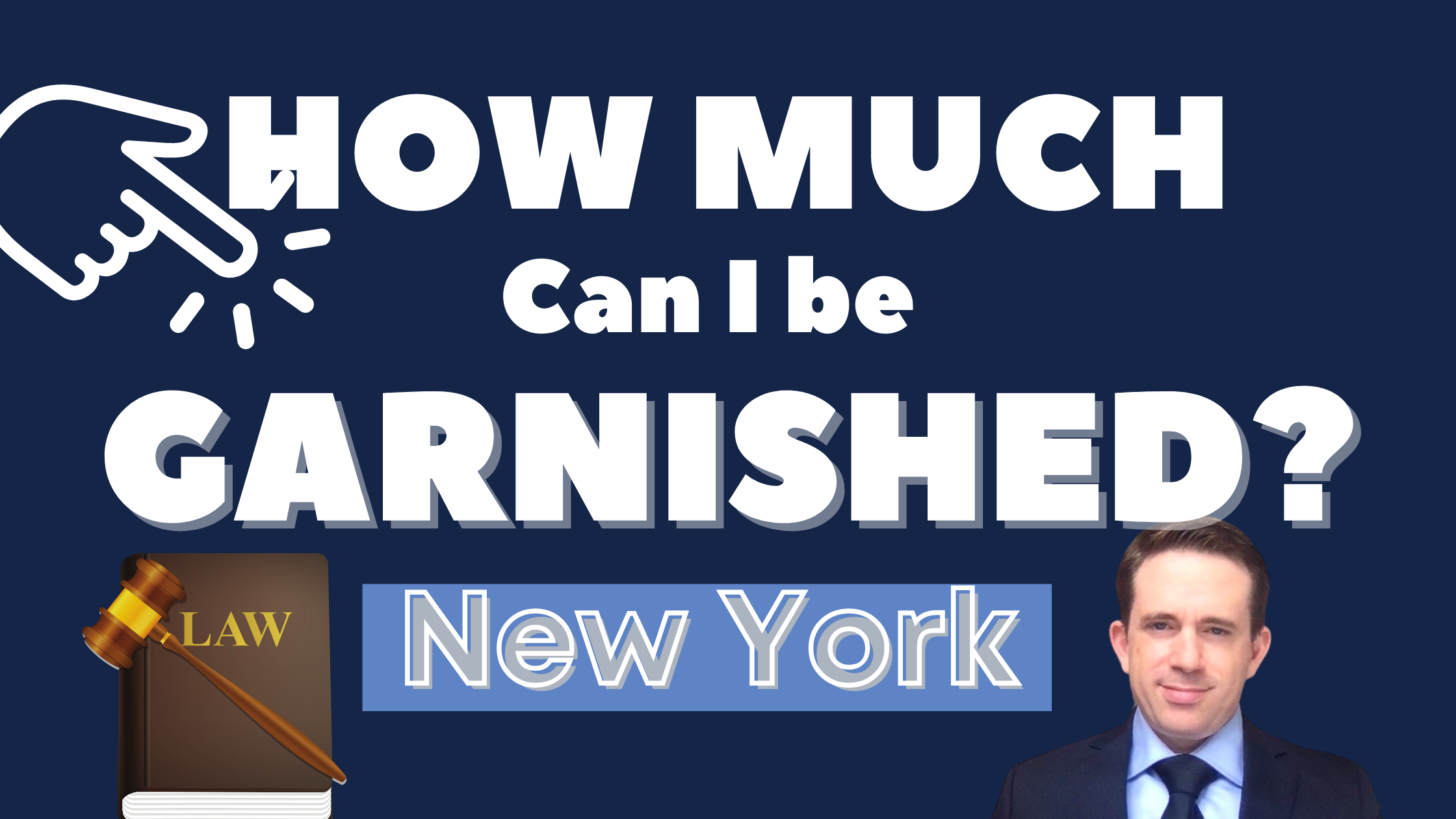We Defend You Against
City Marshal Stephen W. Biegel
It is likely that you have received a "NOTICE OF GARNISHMENT," which gives you a 20-day window to voluntarily pay the judgment before Marshal Biegel serves the attached "INCOME EXECUTION" directly to your employer.
An "income execution" is essentially the legal document that initiates the "wage garnishment" process. When you receive the NOTICE OF GARNISHMENT, it instructs you to pay 10% of your salary, wages, or any other income. Failing to do so will result in the Income Execution being directly served to your employer, who will then be required to forward 10% of your paycheck to the marshal before you receive your payment.
Ways to stop the garnishment:
- Obtain a court order or stipulation vacating the court judgment (what we do).
- Pay off the judgment directly with the Marshal.
- Enter into an agreement with the plaintiff's attorneys to pay the judgment and/or hold the judgment in abeyance (suspension) while you pay off the judgment.
New York Wage Garnishments: The Basic Law
- Receive a Notice of Garnishment? Here’s a Summary of New York Law
- How much of my wages can be garnished? Summary of New York Law
- Vacating a Default Judgment in New York: 8 Fine Points
Quick Facts about New York City Marshals:
- NYC Marshals collect court-ordered fees and a 5% "poundage" for private litigants.
- Fees are statutorily granted; Marshals pay the city $1,500 annually plus 4.5% of collected fees.
- Classified as civil law enforcement, public, and ministerial officers under the NYC Civil Court Act.
- Enforce civil court orders: collect judgments, seize property, execute evictions, serve execution notices.
- Have same powers as Supreme Court Sheriffs: seize money, movable property, vehicles, execute rental premises possession returns.
- Appointed by mayor for five-year terms as independent public officers; no salary.
- Official activities are bonded; authorized to serve execution notices, physically levy property.
- Must maintain detailed records subject to appellate division review.
If you need help, complete this intake form.
Stephen W. Biegel
New York City Marshal
City of New York
109 West 38th Street, Suite 200
New York, NY 10018
What is the Poundage Rate for New York City Marshals?
A marshal is authorized to levy a 5% poundage on the entire amount recovered, encompassing fees and expenses. The poundage is applied to the smaller amount between the judgment and the settlement if settled after a levy. If an execution is nullified after a levy, the poundage is determined based on the value of the property levied, up to the amount of the execution. To be eligible for poundage, marshals must actively participate in the collection of the judgment, as specified in CPLR § 8012. Generally, the judgment debtor is responsible for the poundage unless otherwise stated in an agreement or court order.
A Brief Guide to the Top 5 Wage Garnishment Laws in New York
- As per New York law (N.Y. C.P.L.R. 5231 (b)), if you are in debt, a maximum of 10% of your earnings can be garnished to repay it.
- A judgment creditor is prohibited from garnishing your weekly wages unless the net amount, after taxes and other deductions, exceeds 30 times the federal or state minimum wage (N.Y. C.P.L.R. 5231 (b)(i)).
- The weekly garnishment cannot exceed 25% of the net earnings or the amount that exceeds 30 times the minimum wage, whichever is less (N.Y. C.P.L.R. 5231 (b)(ii)).
- If you are also responsible for alimony or child support payments, the garnishment cannot exceed 25% of your net income after deducting those payments (N.Y. C.P.L.R. 5231 (b)(iii)).
- "Earnings" refers to the compensation received for work performed, and "disposable earnings" refers to the remaining amount after all lawful deductions have been made (N.Y. C.P.L.R. 5231(c)).

Complete this
intake form if you've received any communication from a New York City Marshal. It
is not too late to protect your money and assets.

